

Stronger positions in rapidly changing markets
For ICA Gruppen, 2024 was an eventful, challenging but also very successful year. We had strong sales growth on the back of an increased number of customer visits and during the year we increased our market share in the grocery and pharmacy markets. We are now entering 2025 with strong market positions and lower debt, while our sustainability work continues at a rapid pace.
Nina Jönsson CEO, ICA Gruppen
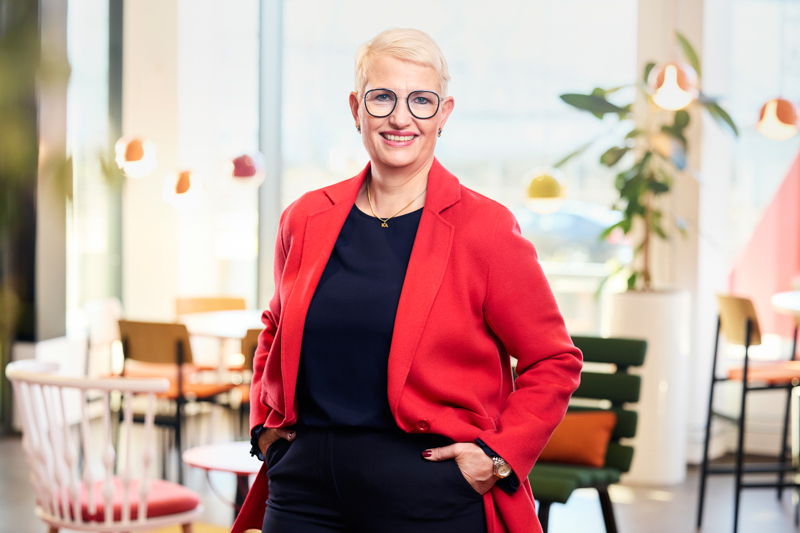
Read the CEO’s comments
Financially, we performed largely in line with our targets in 2024. Underlying sales growth in grocery retail operations was strong overall, in parallel with strengthened earnings in SEK.
ICA Sweden reported increased sales for the full year, where unlike the previous year, growth was essentially fully volume-driven. Adjusted for structural costs last year, operating profit was on a par with the previous year in SEK, but large investments put pressure on the operating margin, which could only be partially compensated for by cost savings and higher efficiency in areas such as logistics.
Rimi Baltic also performed well, with higher market shares and improved earnings. This trend was the result of active work with the assortment and campaigns as well as cost efficiency.
Apotek Hjärtat posted its best year ever in terms of operating profit as well as market share. Evidence continues to mount regarding the competitive advantage of co-location with ICA. It is also especially exciting that growth in e-commerce operations during the year was considerably higher than for the market in general.
ICA Bank’s performance was mixed. On the one hand, the bank had a good year with increased business volume and improved earnings, while ICA Insurance was burdened with a negative claims trend. This combination meant that overall, ICA Bank’s earnings were down year-on-year.
ICA Real Estate continued to generate stable cash flows, while concurrently implementing important investments in areas such as warehouses and logistics. Several major divestments totalling over SEK 1.3 billion were made during the year, even as the property market remained challenging.
Altogether, ICA Gruppen’s net sales increased 6.5% to SEK 157.2 billion during the year. Operating profit excluding items affecting comparability and effects from IFRS 16 Leasing amounted to SEK 6.1 billion (5.8), corresponding to an operating margin of 3.9% (4.0). Net debt decreased with over SEK 6 billion to SEK 14.6 billion, which was primarily a consequence of strong cash flows, property divestments and the new share issue to independent ICA retailers completed in the end of the year.
Continued focus on price
ICA Sweden, independent ICA retailers and Rimi Baltic worked hard during the year to ensure that they could offer competitive prices and high value for money, not least for everyday items as well as fruit and vegetables. This involved lowering the price of everyday items, offering more discounts both in store and online, adjusting the assortment and continuing to develop the range of private label products. The investments in price are long term and will continue in full force 2025.
Overall, our performance during the year clearly demonstrates the power of our organisation and the opportunities that are created when we work together, coordinate our resources and focus on the best interests of our customers. This is also evident in our strong culture in which the retailer perspective, entrepreneurship, local market knowledge and the drive to constantly develop are vital components. This is inspiring to see and motivates us to remain focused.
Thriving agriculture and stable domestic food production
During the year, long-term work continued to support local food production as well as local suppliers. This is important work, both as a response to customer demand for locally produced items, and to support farmers and vibrant farming communities. It has long been a top priority, but during the past year it became even more urgent as a result of increasing certainty. Supporting Swedish agriculture is an important component of ensuring stable domestic food production and increasing food security. However, securing robust systems and stable supply chains requires businesses, civil society, authorities and politicians to collaborate, as well as greater clarity regarding actual conditions. This is where we all need to step up and take greater responsibility.
A more sustainable food supply chain
2024 was the hottest year since records began, and the first year with an average temperature that was more than 1.5°C above pre-industrial levels. To help break this trend and limit the consequences of it, enormous investments need to be made immediately across the entire value chain.
Emissions from the food industry are responsible for a significant portion of climate impact and as an important actor in society we have a particular responsibility.
Our own operations have continued to reduce emissions, only since 2022 with –19%. As an example, from 1 January 2025, all goods transports in the major cities are fossile free. We will continue to work on this, of course, but to make a more extensive change we need to reduce the overall climate footprint all the way from food production down to consumption. Impacts need to be reduced at every stage. This is where we will make additional efforts. Some of these pertain to reducing the impact of the products sold in our stores and pharmacies, while others pertain to changes to the assortment and various ways of stimulating and encouraging customers to choose more plant-based foods. We want to make it easy to make the right choices when shopping. The goal is to reach net zero climate impact across the entire value chain by no later than 2050, with significant reductions by 2030.
As one of the first grocery retail actors in the Nordics, we had our science-based climate targets approved during the year by the SBTi. Having clear targets is important, of course, but even more important is having a concrete plan for how to reach them. During the year we have clarified and specified our roadmap. More information about this can be found in our sustainability reporting. It also includes in-depth information about our work with other aspects of sustainability, including biodiversity as well as social and ethical aspects.
Focus on the future
There’s no doubt that the last few years have been challenging. First came the pandemic and its consequences, then inflation, increased geopolitical uncertainty and an increasingly unstable operating environment.
But looking ahead, we do that from a position of strength and with clear objectives. While the economy is predicted to improve in the coming year, we believe that the increased focus on price will remain. That is why we will continue to invest in lowering prices.
One of our top priorities is to continue expanding the portion of our offering that makes every day easier. Based on personalised and sustainable offerings with high value for money, we intend to increase volumes and strengthen overall market positions. We intend to continue to grow within our core business of grocery retail, but also within our complementary operations of non-food, pharmacy, banking and insurance. We will do this through continued improvement in each of our business areas, through more seamless interaction between our physical and digital channels, through maximising the opportunities that come with new technology and through increased internal collaboration based on the Group-wide loyalty programme Stammis. Our ambition is to gradually launch more Group-wide offerings that strengthen the whole, such as the mortgage offering with an interest rate discount for Stammis members, the food insurance plan ICA Bank launched in the beginning of the year and our attractive offerings for pet owners and students.
Customer-focused, close to stores and agile
Events in the world and in the market make efficiency, agility and adaptability essential – at the Group level, in our operating companies and in stores. To enable more aggressive investments in prioritised areas, in recent years we have implemented multiple changes to our organisational structure to reduce the number of overlapping functions as well as to facilitate faster decisions, a stronger focus on customers and sales, and better support to the ICA retailers. We have also established new structures and processes for skills development and continuous learning in areas that are key to our continued development. This work never ends and in 2025 we will further step up our efforts.
Overall, last year’s performance clearly demonstrates the strength of the ICA Idea – the combination of individual drive and collective strength. Based on this strong foundation, we are now further refining our offerings and continuing to create value for customers as well as society at large.
Solna, February 2025
Nina Jönsson
CEO
Key figures 2024
157,216 SEK m
Sales 2024
6,884 SEK m
Operating profit 2024*
4.4%
Operating margin 2024*
*Excluding items affecting comparability
Strong price focus


Science-based net zero targets approved by the SBTi
In 2024, ICA Gruppen became one of the first grocery retail businesses in the Nordics to have its science-based net zero climate targets approved by the Science Based Targets initiative (SBTi). The targets include reducing various types of emissions at different rates, with clear milestones for 2030 and 2050. The long-term target is net zero.
Reduced emissions across the value chain
Around a quarter of global climate impact arises from food production. Making food systems more sustainable – locally and globally – requires more sustainable production, a higher share of plant-based food consumption and reduced waste across the value chain. During the year, ICA Sweden and Rimi Bal…
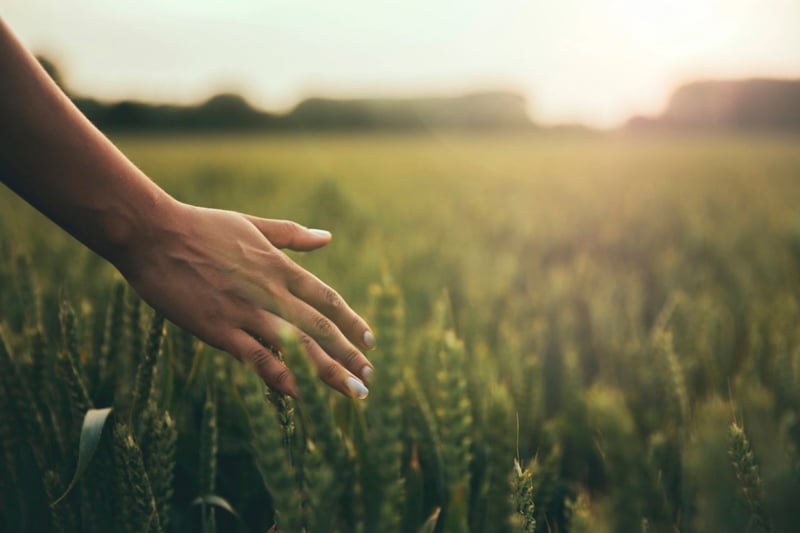
Food waste prevention
About one third of all food purchased is thrown instead of consumed. ICA Sweden, ICA stores and Rimi Baltic are taking action to prevent and reduce food waste, for example by using raw materials with beauty defects in corporate brand products, using packaging that extends shelf life, reducing prices…
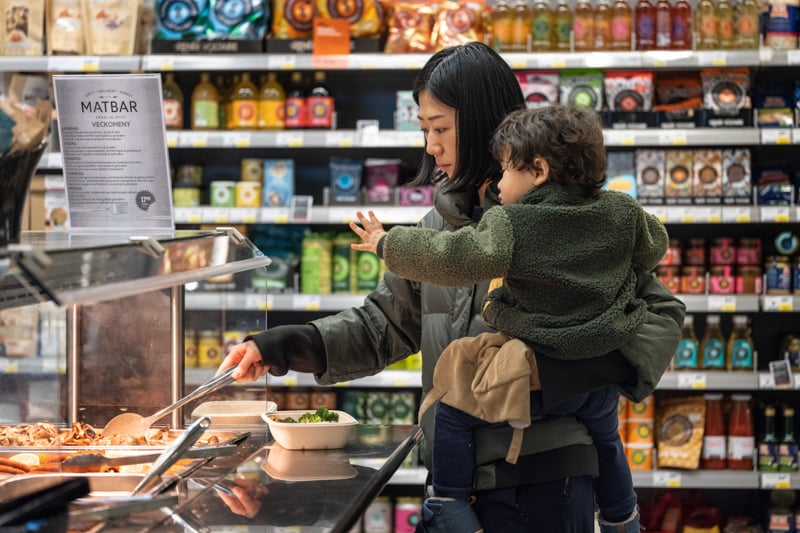
More actions to reduce energy consumption
Efforts to reduce energy consumption continued in the year. The target for operations in Sweden is to reduce energy consumption 20% by 2030. All energy consumed must be renewable. Self-generated electricity is to increase, be in place at 25% of stores and account for 10% of the energy consumption of…
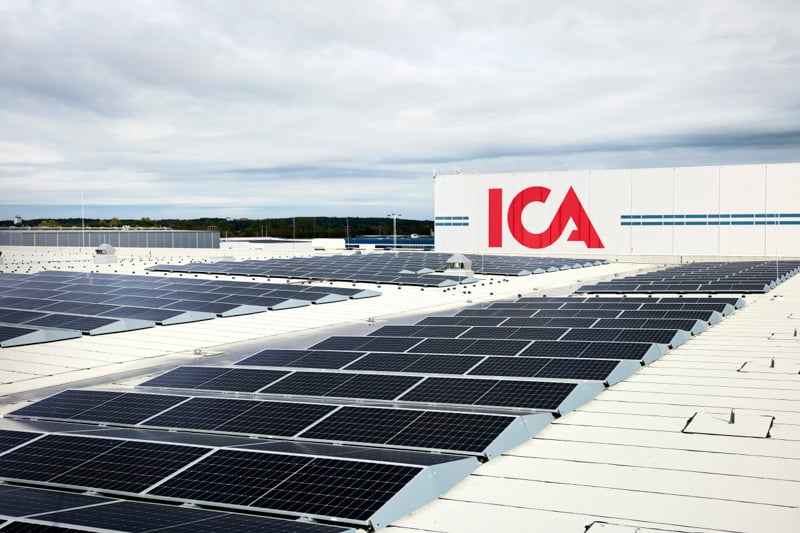
AI nudges in the right direction
The AI service Klimatknuffen (Climate Nudge) started as a pilot project in 2024 to help customers choose products with lower climate footprints. Klimatknuffen gives customers personal tips on which goods to switch to in their online shopping basket to reduce their carbon footprint. The AI model tail…
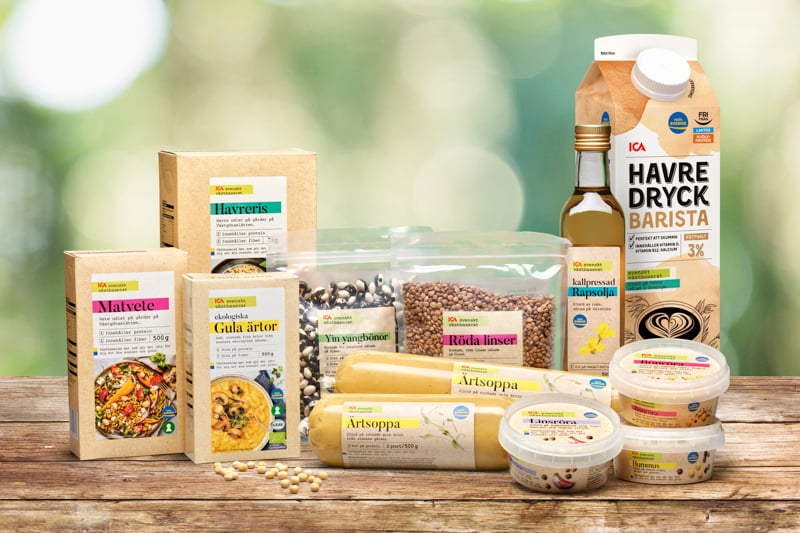
80% lower emissions from maritime transport
ICA Sweden contracted with A.P. Möller – Maersk during the year to use Maersk’s ECO Delivery Ocean maritime transport solution, which covers the transport of food and other goods sourced by ICA from Asia, South and North America, and Africa. This is expected to lower ICA’s emissions from maritime tr…

Major steps toward fossil-free goods transport in Sweden
In 2024, ICA Gruppen focused on making all goods transport by road in Stockholm, Gothenburg and Malmö fossil-free by 2025. 70% of goods transport in the country is now fossil-free, and through continued efforts, partnerships, innovation and investment, work continues to ensure fossil-free goods tran…
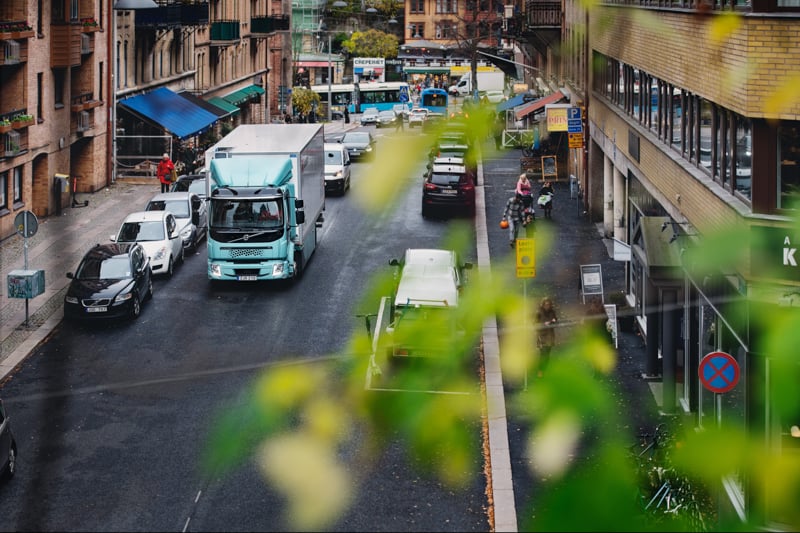
Product development to lower the climate footprint
During the year, ICA launched Hushållsfärs (30% pea-based mince and 70% minced beef) to help consumers eat more plant-based foods in their daily lives. Compared with traditional minced beef, ICA Hushållsfärs has a 28% lower climate footprint (based on the climate footprint for minced beef and vegeta…
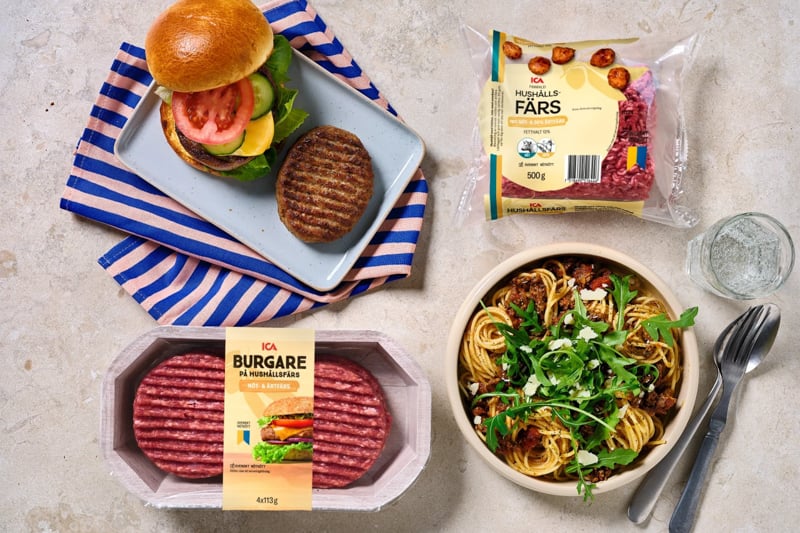
SEK 50 million for cancer research
ICA stores, Apotek Hjärtat and their customers together raised SEK 50 million for Swedish cancer research in conjunction with the Swedish Cancer Society’s Pink Ribbon 2024 campaign – SEK 39.6 million from ICA and SEK 10.4 million from Apotek Hjärtat.
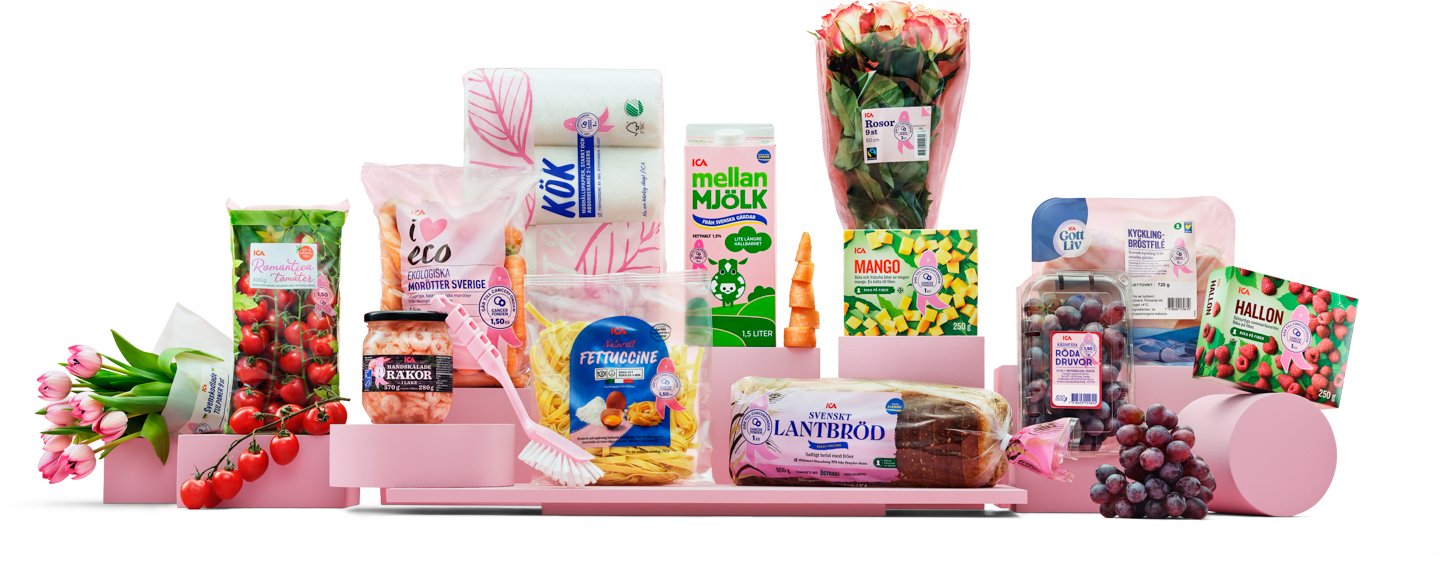
A positive force in the community that makes a difference
For ICA Gruppen, strong community engagement goes hand in hand with long-term profitability. During the year, efforts continued to lead the way on key matters for the environment, health, inclusion & diversity, quality and community engagement.
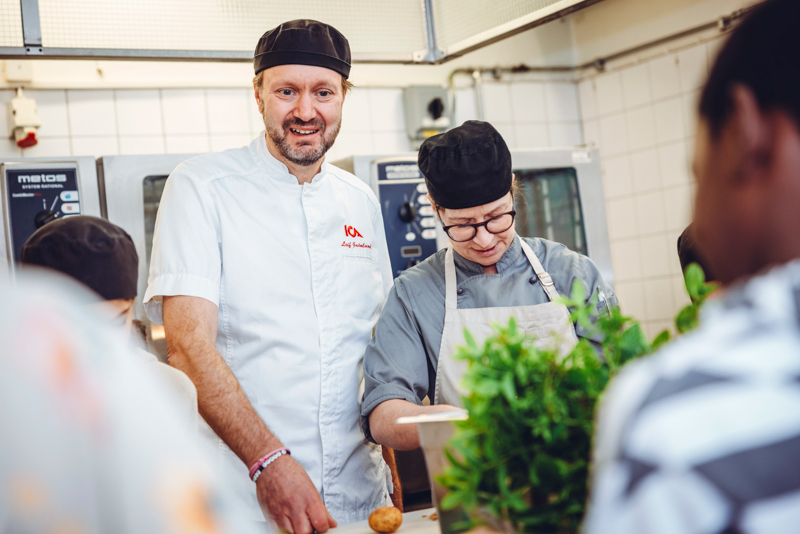
Red Cross and ICA in joint initiative to increase Swedish home preparedness
As a major player and with a presence across Sweden, ICA plays an important role within preparedness when it comes to food, medicines and secure payment solutions. During the year, ICA and the Red Cross conducted a joint initiative to improve civilian preparedness in Sweden.
Small bag, big heart
Sweden abolished its plastic bag tax in the year, which risks leading to an increase in plastic carrier bags. With a desire to counteract this, Apotek Hjärtat has chosen not to reduce the price of bags. Instead, all profits from the sale of plastic bags will go to the WWF and its work to halt the de…

Age limit for advanced skin care
During the year, Apotek Hjärtat introduced an age limit for advanced skin care. To purchase these products, customers must be at least 15 years old, have parental consent or a skin condition to be treated by these products. The decision is part of counteracting unhealthy behaviour and ideals that ha…
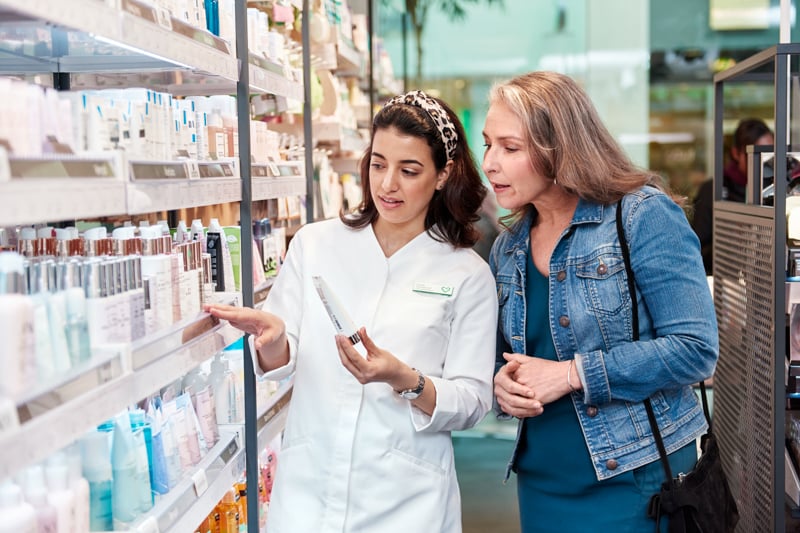
ICA Bank second in Sustainable Brand Index ranking
In the Sustainable Brand Index™ 2024, ICA Bank was ranked second among Swedish banks. The Sustainable Brand Index is based on a study where consumers were asked to rate the sustainability of Swedish brands.

Neighbourhood security walks
In 2024, ICA Real Estate conducted annual neighbourhood security walks at all active properties, designed in accordance with the Swedish National Board of Housing, Building and Planning’s recommendations. The walks resulted in concrete action lists to increase safety and security around each propert…
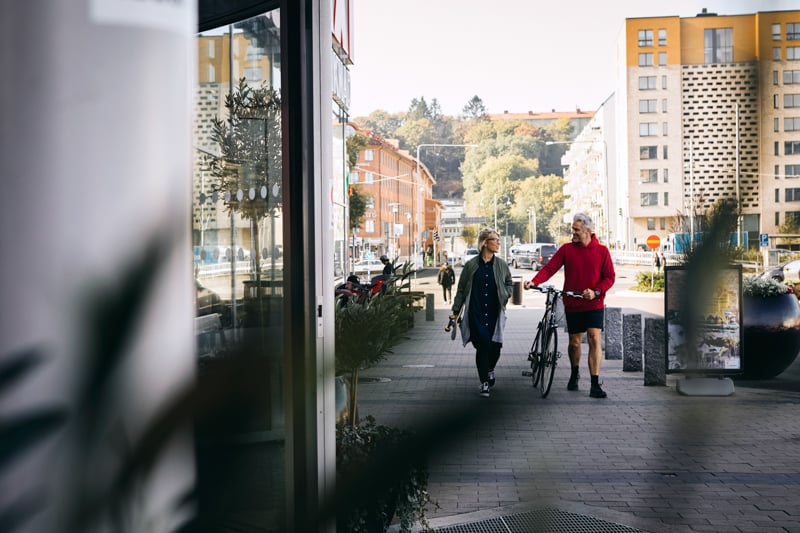
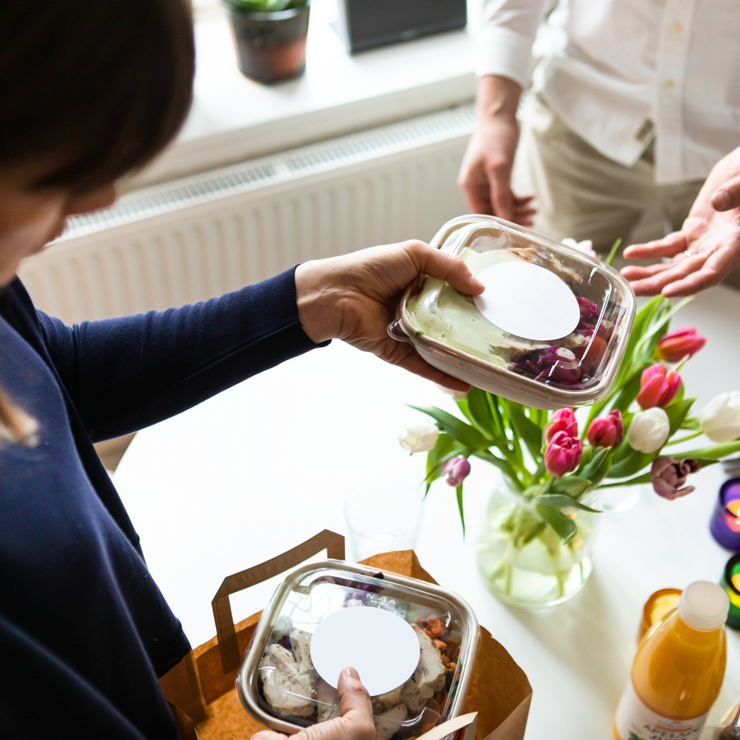
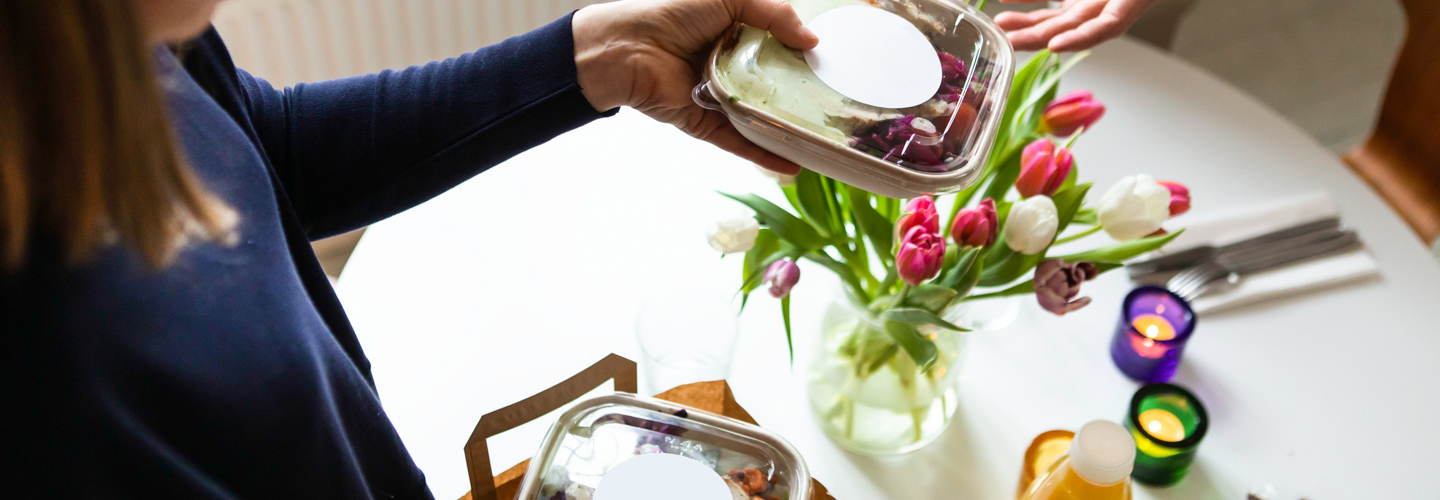
How we respond to changes in the world around us
For a long time now, ICA Gruppen’s markets have been changing at a brisk pace – all the more so in recent years as a result of new consumption patterns and rapid digitalisation. ICA Gruppen’s goals include ensuring long-term growth with sustained profitability in the face of a rapidly changing world. Ambition 2030 sets out this course and states where ICA Gruppen is to be in a few years’ time.
Find personal solutions
Our ambition
- We excel in our markets by being the best at serving and inspiring all customer segments with tailored, local and attractive offerings to meet a broad range of everyday needs
- We are recognised for providing personal experiences that create engagement and loyalty, regardless of channel

Save time & effort
Our ambition
- We are recognised for providing a seamless, frictionless and reliable shopping experience that saves time and effort
- We simplify and provide solutions for customers so that they have more time and energy for what they value in life

Make sustainable choices
Our ambition
- We are the recognised industry leader in all our markets, driving the development towards reduced climate impact and a more modern and sustainable food system
- We are the best in our markets at helping and inspiring customers to make sustainable choices
Read more about how we make it easy to make the right shopping choices ›
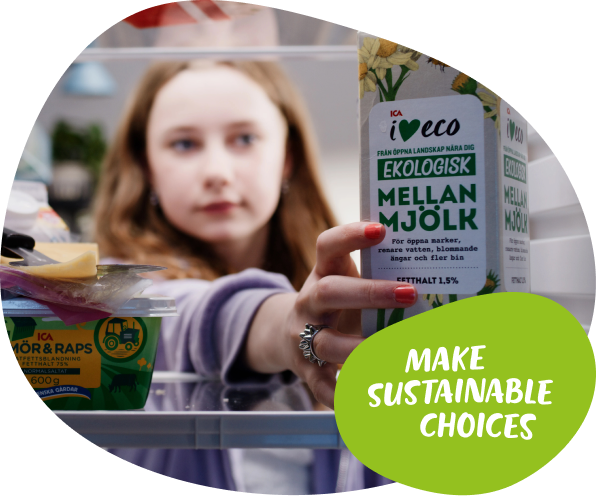
Get value for money
Our ambition
- We are seen as offering the best value for money in our markets, in terms of price in relation to quality
- We meet the needs of diverse customer segments by having offerings across the price range that are both relevant and offer value for money

Key enablers to achieve the targets

Operating with high efficiency and speed
Our ambition
- We optimise our operations for the entire ICA system by maximising the value of our combined assets to strengthen our uniqueness and competitive advantage
- We use business insights to automate and streamline our processes, thereby reducing costs and freeing up time to spend on value-adding activities

Deploying next generation technology
Our ambition
- We outperform our competitors in leveraging digital technology, different channels and insights from customer data to optimise the business and increase value to our customers
- We make data and technology easily accessible to ourselves, our stores and our customers to improve user-friendliness

Attracting and empowering people
Our ambition
- We are the most attractive and valued employer, where people have opportunities to grow, influence and perform
- We have a collaborative culture within and across our companies that mobilises the power of the organisation to make us agile, adaptable and insight-driven
Our businesses’ performance
ICA Gruppen’s Annual Report 2024
The full Annual Report, including financial information and the Sustainability Report, is available for download below.
Download Report